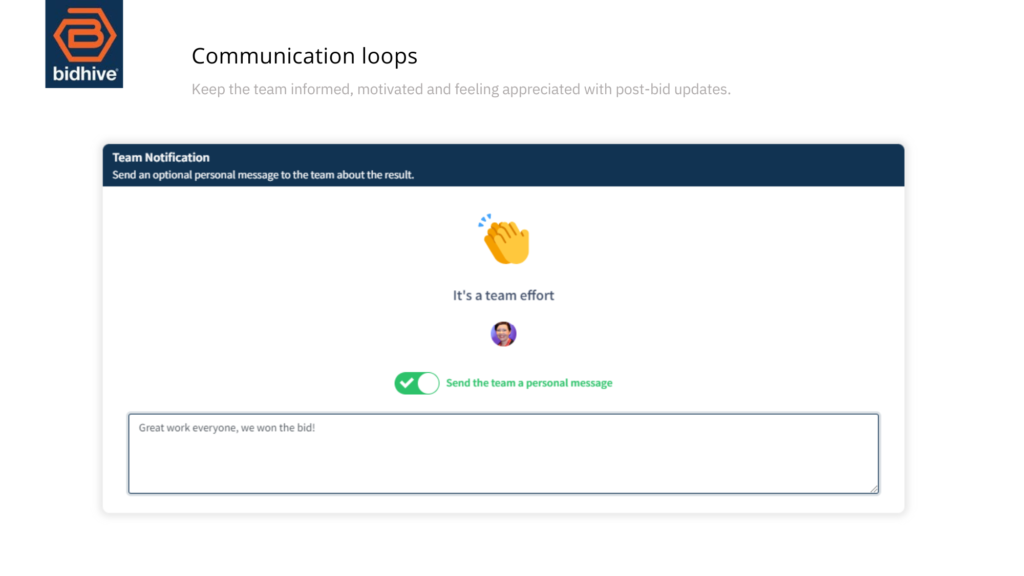The realm of neuroperformance and bid planning is a field that may be uncharted territory for many, but holds immense potential for changing the way we approach bidding and tendering in our businesses.
In competitive bidding, where high stakes and tight deadlines are the norms, the ability to plan, strategise, and execute effectively is crucial. But what if we told you that the secret to optimising these skills lies within the intricate workings of our own brains?
The science behind successful bid management and the role of cognitive functions in shaping our bidding strategies.
Neuroperformance, the study of the brain’s functioning and its impact on our performance, offers us significant insights into how we can harness our cognitive abilities to enhance our bid planning process. It provides us with a scientific understanding of how our brain reacts under pressure, how it manages complex tasks, and how it can be trained to improve focus, decision-making, and productivity.
Planning ahead of a bid, rather than responding reactively (or chaoticly), brings about numerous benefits, including improved efficiency, better time management, and clearer, more focused work. This is not only beneficial for the bid team environment and odds of a better outcome but also has a significant impact on the mental well-being of the team members involved. And we simply don’t talk enough about this as an industry.
Balancing cortisol and dopamine: The highs and lows of the bidding process
In the context of bidding, efficient planning can be linked to reduced cortisol levels and increased dopamine levels, leading to improved executive functioning and ultimately better outcomes.
Cortisol is often referred to as the ‘stress hormone’ (fight or flight response), because of its role in the body’s stress response. When a person is under stress, the body produces more cortisol, leading to increased heart rate, blood pressure, and glucose levels. On the other hand, dopamine is a neurotransmitter that plays a role in how we feel pleasure. It’s also involved in brain processes that control movement and emotional responses, and it enables us not only to see rewards but to take action to move toward them.
Efficient bid planning can help reduce cortisol levels by minimising stress. When a bid is well-planned, team members have a clear understanding of their roles, responsibilities, and timelines. This reduces uncertainty and the associated stress, leading to reduced cortisol production.
A study by Lupien, S.J., McEwen, B.S., Gunnar, M.R., & Heim, C. (2009) found that prolonged exposure to cortisol due to chronic stress can lead to significant health problems and impaired cognitive performance.
On the other hand, efficient bid planning can increase dopamine level, the ‘reward hormone’, by fostering a sense of achievement. Every time a milestone is reached or a task is completed, team members feel a sense of accomplishment.
This feeling is associated with the release of dopamine in the brain, which promotes feelings of pleasure and satisfaction. A study by Adcock et al (2006) found that the anticipation of a reward – in this case, the successful completion of a task or milestone – triggers the release of dopamine.
Clear executive functioning and better outcomes
Efficient bid planning, by modulating cortisol and dopamine levels, establishes an optimal neurobiological environment for clear executive functioning. This is evident in improved cognitive abilities, enhanced decision-making, and sustained focus throughout the project lifecycle. The synergy between reduced stress (lower cortisol) and heightened motivation (increased dopamine) results in a more effective and resilient project management team.
Digital tools and the dopamine effect
Much has been said about the achievement of dopamine hits with video games and social media, but technology-enabled work tools can also play a role in balancing these hormones and enhancing team performance. Here’s how:
1. Streamlined Processes: Digital tools can automate routine tasks, reducing the workload and mental strain on team members. This reduction in workload can lower cortisol levels, as team members will perceive fewer threats or high-pressure situations.

Visual representation of automated task management through a Gantt chart reduces workload and mental strain on team members.
2. Enhanced Communication: Digital communication tools can make it easier for team members to collaborate, share information, and stay updated on bid progress. This can reduce the uncertainty and stress associated with miscommunication or information gaps, thereby reducing cortisol levels.

An efficient bid notification system ensures seamless communication and timely updates for your team.
3. Task Management: Technology can provide efficient ways to manage tasks. Tools like digital Kanban boards or project management software can help in planning, tracking, and managing tasks. This can reduce the cognitive load related to task management and lower cortisol levels.

Bid management automation allows bidders to focus on high-value activities, thereby fostering innovation and strategic thinking.
On the other hand, real-time task management can increase dopamine levels, giving team members a sense of accomplishment. When we efffectively witness manage tasks and witness our progress, our brain releases dopamine, creating feelings of satisfaction and joy.

Task management is not just about ticking off tasks from a cheklist; it’s about fostering well-being, enhancing productivity, and cultivating and sense of achievement.
4. Goal Setting and Tracking:
Digital tools can also help in setting, tracking, and achieving goals. Setting clear and measurable goals at the company, team or individual level is a strategic step towards success. Achieving set goals can trigger the release of dopamine, contributing to feelings of pleasure and satisfaction.

Tracking progress and celebrating achievements not only boost morale but also drive performance, fostering a culture of continuous improvement and excellence.
5. Recognition and Rewards: Digital platforms can also facilitate recognition and rewards for achievements, which can stimulate dopamine production and create a positive feedback loop of motivation and high performance.

Bidhive’s Team Notification feature keeps the team updated on bid outcomes. Social interaction, including anticipation of communication, can stimulate the release of dopamine.
6. Learning and Development: Digital learning platforms can provide team members with opportunities to learn new skills and knowledge, which can be both rewarding and enjoyable, potentially leading to increased dopamine levels.

Analysing post-bid performance with Bidhive’s comprehensive tools facilitates continuous learning and improvement in the bidding process
Conclusion
Efficient bid planning can have a significant impact on the mental well-being of team members, reducing stress (and thus cortisol levels), increasing feelings of achievement (and thus dopamine levels), and improving executive functioning. This leads not only to a healthier and happier team but also to more successful outcomes in the bidding process.
By supporting bid teams with technology-enabled work tools, businesses can also help to further reduce their employees’ stress levels by streamlining processes, enhancing communication, and improving task management. At the same time, they can boost dopamine levels by supporting goal achievement, learning, and recognition. This balance can help to enhance team performance and overall wellbeing.
References:
Adcock, R.A., Thangavel, A., Whitfield-Gabrieli, S., Knutson, B., & Gabrieli, J.D.E. (2006). Reward-motivated learning: Mesolimbic activation precedes memory formation. Neuron, 50(3), 507-517.
Lupien, S.J., McEwen, B.S., Gunnar, M.R., & Heim, C. (2009). Effects of stress throughout the lifespan on the brain, behaviour and cognition. Nature Reviews Neuroscience, 10(6), 434-445.


